There are countless examples of games that were trashed at release, only to have their reputations rehabilitated years later upon being (re)discovered by retro game enthusiasts. Usually this is because the game in question was misunderstood or otherwise ahead of its time, both revelations which are only revealed with the hindsight and context provided by the future.
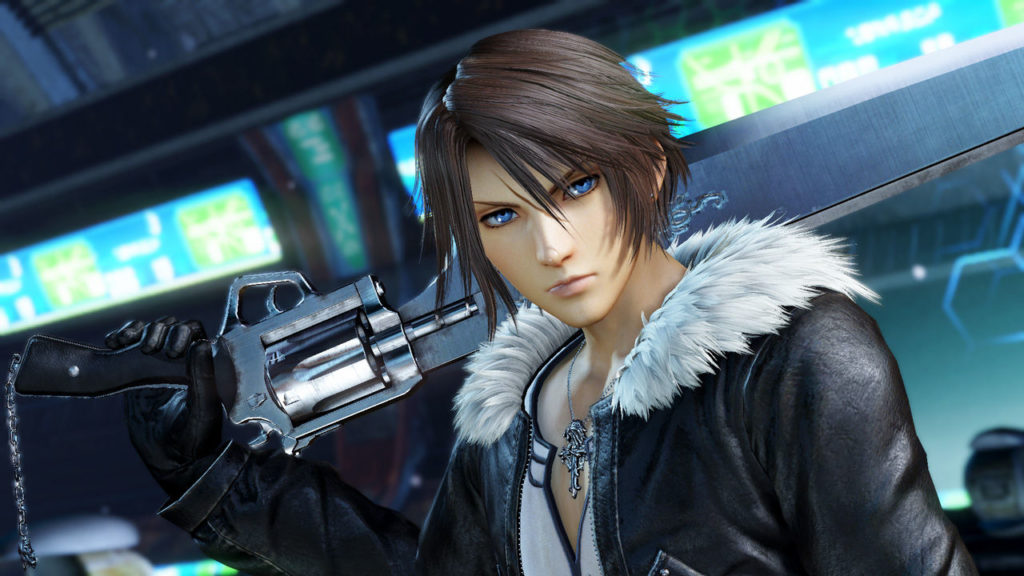
On the flip side, there are games that were beloved at release, only to be trashed years later as retro gamers discover that it didn’t age well, or that launch-day opinions were misinformed, or whatever the case may be.
But there’s a third option as well, one in which the initial impression of Game X was accurate, and remains accurate once it hits retro status. In my (admittedly limited) experience, this is the rarest take of all. This is probably due to the simple fact that tastes and opinions change as we age, though it isn’t uncommon for people to change their minds for other reasons (for example, to better align with the opinions of their peers, or to adopt a contrarian opinion for the sake of attention).
Final Fantasy VIII is one of those games that, for me, has remained in this third category for as long as it’s been out. I first played it upon release, and it took me upwards of six attempts across 23 years before I finally saw the end credits. Suffice to say that I didn’t like it then, and I still don’t like it now. My reasons have changed a bit, but I’m convinced that, for once, my teenage self had it right – something is off with this game.
FF VIII sold a lot of copies right out of the gate, but I also remember a lot of the initial (non professional) impressions of the game, and they weren’t all glowing. One of the biggest gripes that people had were that the combat and magic systems were unintuitive, difficult to understand, and contrary to what they expected from a jRPG (or at least contrary to what they experienced in FF VII, which was the only jRPG that a lot of Americans had played back in 1999).
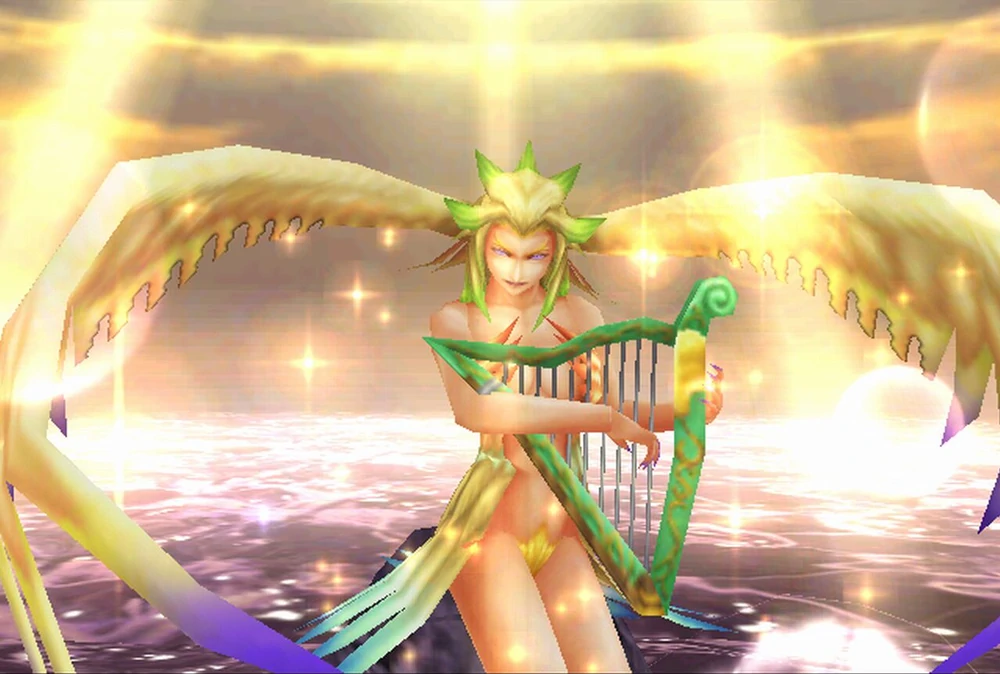
Retro reassessments of FF VIII would have you believe that these systems are great, actually. But no – gamers got it right the first time. FF VIII’s systems are unintuitive and difficult to understand, and I don’t think it was fair to integrate such a system into a franchise that found a new level of international success and then expect a whole bunch of newbies to grok it. Heck, even today I think it is too weird and unintuitive for its own good, even though there are plenty of resources that will literally walk you through it.
Let’s step back for a second, and explain how FF VIII works from the ground up. Forget about what you, personally, like (or don’t like) in the game, or what you personally like to see from a jRPG. Put yourself instead in the shoes of the casual/mainstream-adjacent gamer that historically made/makes up the majority of Final Fantasy’s sales numbers.
Final Fantasy VIII’s combat is built around something called the Junction System. The idea is simple in theory – you can boost a given character stat by assigning (or “Junctioning”) a magic spell to it. In practice, the system is quite a bit more complicated than that.
For instance, it’s not as simple as saying “I’ll equip Fire to give my attacks Fire damage.” There are multiple roadblocks in your way.
The first roadblock is that at the start of the game, you can’t just Junction willy nilly to whatever stats you want. In fact, you can’t Junction to any stats at first. You have to unlock that privilege. You do that by equipping your characters with Guardian Forces (the game’s equivalent to old school FF Summons). GF’s have abilities they can learn over time; in particular, each one can learn the ability to Junction to a handful of specific stats.
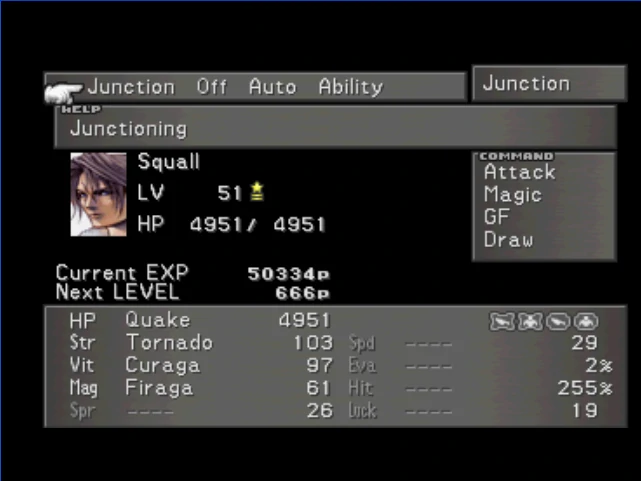
So you equip your GF’s, then you configure them to start learning their Junction abilities, and then you go fight a bunch of monsters in order to gain the experience needed to learn them. If you don’t specifically choose the GF’s Junction ability, it will choose a default that’s (almost certainly) crappy. And once they learn one Junction ability, be sure to go back into the menus and assign them to the next one, or they’ll once again default to something else.
After all those random battles, now your characters can Junction spells to three, maybe four stats. If you want each character to be able to Junction to every stat, you’ll need to equip multiple GF’s to each person, and in specific combinations that ensure that every stat is covered (which implies, of course, that this isn’t something you’ll be able to do until later in the game).
But there’s another roadblock. The Junction System still isn’t as simple as saying “I’ll Junction Fire to my Attack stat.” In FF VIII, spells are not cast out of a pool of Magic Points. Instead, they’re treated like items; you store a quantity of “stocks” for a given spell. For example, if you have a stock of five Fire spells, that’s how many times you can cast it.
This is important, because the boost you get from Junctioning is dependent on two factors – the quality/nature of the spell you choose, and how much of it you have in stock. Junctioning 10 Cures to your HP stat is going to give you a much smaller boost than Junctioning 100. Or consider the fact that 50 Cures may provide less of a boost than 100 Waters.
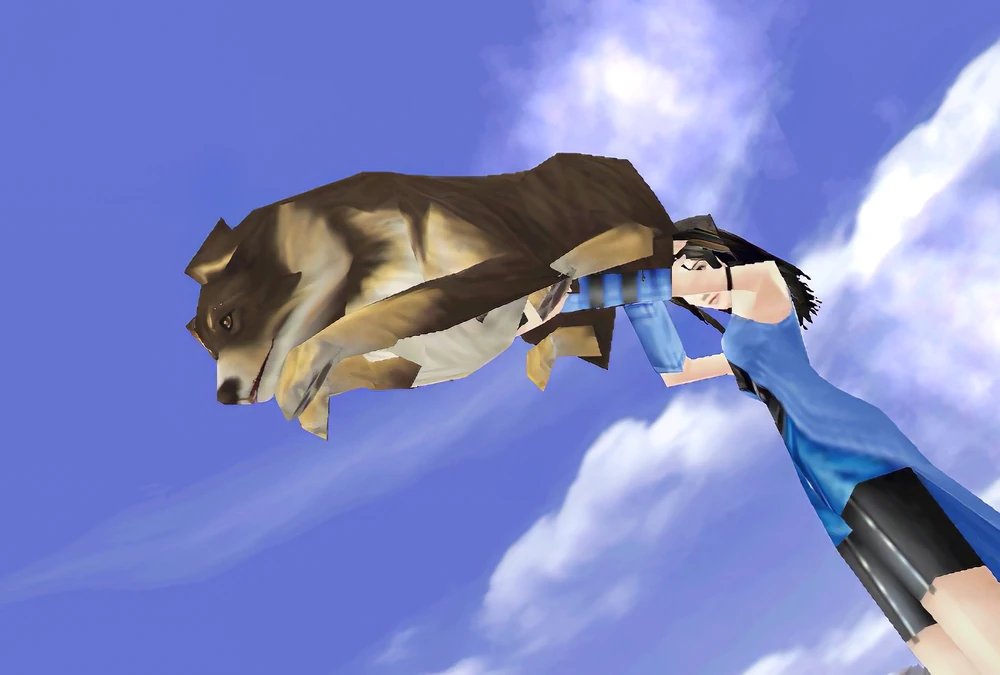
There are a few implications that follow from this premise. One is that your stats can decrease if you cast too many of a given spell. Furthermore, the cumulative effect of the Junctioning system means that whatever benefit you get from casting a single instance of Blizzard is almost always going to be outweighed by the benefit of Junctioning 100 Blizzards to a stat.
All of this is to say that, outside of some specific scenarios, it is actually to your detriment to cast spells in Final Fantasy VIII.
We’re still not done explaining these systems. We haven’t talked about how one obtains spell stocks. The most common way to do so is to use the Draw system, which allows you to spend a turn during combat drawing stocks of a spell out of an enemy. The Draw can fail, or it can give you a (semi?) random number of stocks (and enemies have an unlimited number of stocks you can draw from, so you can just sit there and pull as long as you want).
Another option is Draw Points, locations scattered throughout the game that grant stocks of a given spell (after which they become inactive while they recharge). These are nice bonuses, but don’t recharge enough to be reliable.
Yet another option is to use Guardian Force abilities. There are abilities that allow you to refine, say, Level 1 magic (Fire, Blizzard), into Level 2 (Fira, Blizzara), or Level 2 to Level 3. One GF also has an ability called Card Mod that can convert the playing cards used for the Triple Triad minigame into some stock of a given spell.
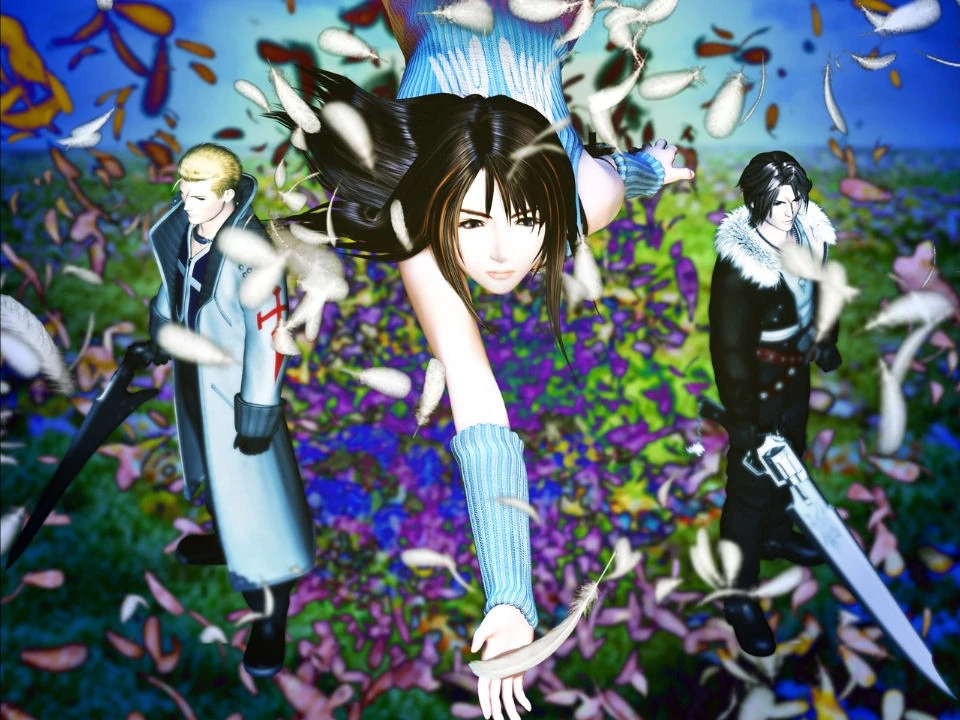
For certain rare spells, the Draw Points or the Card Mod ability may be your best (or only) option, while Draws from enemies (possibly combined with the refinement abilities) are best for lower level stuff.
There’s one final wrinkle we need to cover. Enemies in FF VIII auto-level with the player. As a result, one of the worst things you can do is let your characters level up too much, as this will make enemies tougher. The inverse is also true – the less you level up, the weaker all enemies will be (meanwhile, by Junctioning good spells to your stats, you can still juice them to be way higher than any enemies). If you’re wondering how to avoid leveling, while still gaining the Ability Points needed for GF’s to learn stuff, let’s just say there are ways …
Okay, now we’re done. I want you to go back and reread everything I just described. Remember that you are still in the shoes of the casual/mainstream-adjacent FF fan.
Does any of that sound reasonable or intuitive to you? How does a series as big as Final Fantasy (and yes, it was big internationally after FF VII) decide that such a system is a good idea? It boggles the mind (or at least my mind).
And yet it’s rare to find a modern review of FF VIIII that isn’t positively glowing in regards to the battle system. And this is because the retro gamers who would bother to revisit the game in 2022 are often exactly the kinds of people for whom the Junction System is appealing. These are gamers who love the idea of breaking jRPG systems, and who have been conditioned into thinking that hours and hours of busywork and grinding is not only acceptable but appropriate for the genre.
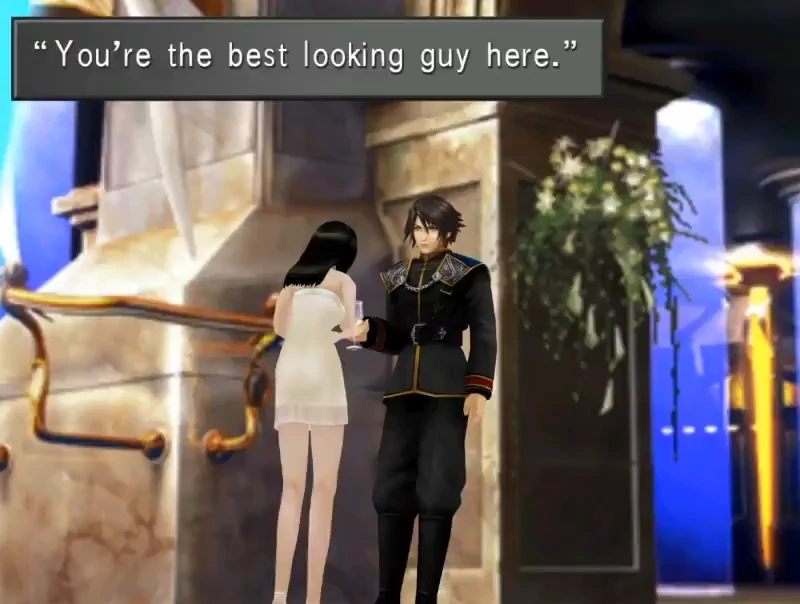
In other words, those rehabilitating the reputation of the game have opinions that are difficult to trust, because they seem to assume that:
- Everyone reading is just like them
- That the high sales at launch means that everyone liked it, and that all the hate for the game came later
- They lack the self awareness to question whether the habits, traditions, and assumptions they’ve accumulated over the decades are actually good or healthy (did I mention that using the Junctioning System to its fullest extent takes a lot of grinding?)
I am not doubting that Final Fantasy VIII is appealing to a certain kind of person. But I wish those fans would be more honest, more clear about the fact that this doesn’t mean that its design is conducive or appropriate for a series that not only sells millions of copies, but expects to sell millions of copies. I’m normally not one to dictate what a game should or shouldn’t do for the sake of art vs commercial success, but you can’t have it both ways. You can’t make a game that is this player hostile and esoteric, and then expect it to sell well (and if it does sell well, like FF VIII did, you should reflect on the fact that maybe it wasn’t because people liked it, but because they bought it before they knew any better. This is a thing that happened a lot back in the days when Internet access was not ubiquitous).
I’m just asking for some honest, sober reflection, and a little bit of self awareness by gamers. I know, I know, that’s like asking the sky if it could turn green. But still. I wish.


One thing FF7 did really well is introducing you to materia gradually, and waiting a bit to bring in the really broken ones. Some of the stuff in FF7 is definitely guide-worthy (chocobo breeding, maybe secret character recruitment) but you could go the whole game without even discovering you can do them.
I don’t think people even really noticed the level scaling in FF8 until well after release – even as someone who plays too many JRPGs I didn’t see people recommend the “don’t level up” strategy to coast through the game until years later. I didn’t like the game much myself and I never beat it, although I watched my roommate in college play it a fair bit.
I feel like rehabilitation of opinion via remakes is happening for other games, too. I have been holding off on getting the FFXII remake because I fear that I will still really dislike the game, even as I like the idea of the game and many of the substantial changes it made sound appealing.
Funny you should bring up FF12 Chris. I have the Zodiac Age Remaster on Switch, and I can’t stand it. The tweaked License Board/Zodiac Job system is busted, the maps are boring, and the story is not nearly as Shakespearean as people would like you to believe. I was hugely let down.
final fantasy 7 definitely defined jrpgs for a generation of gamers on the ps1, but i had played (i think) suikoden, wild arms, and persona not to mention ff3/6 by the time i played 7 and then 8. so i was accustomed to having to learn new systems each time i played a game in the genre, but junction was off putting even then. i strongly believed at the time, and probably still do, that 8 sold as well as it did because 7 was such a phenomenon and then 8 itself was pretty disappointing. it is the only ff game in that stretch – 6 through 10 – that i didn’t devour as soon as i got my hands on it. by comparison 9 was simple, but all the better for it, coming from 8. my impression is that min/maxing the junction system can completely break the game, which i never had the patience for, but i guess the good news is that the game may be balanced so you can beat it without mastering it? i am not sure that is true, but i made it very close to the end before losing interest.
on the broader point about games having their reputations revised or rehabilitated, i think there is something to it, but part of it is probably selection bias – we just dont hear as much about games that were assessed accurately the first time since the status quo isnt as interesting. that said, i do think we had ff8 right the first time, and that the revisions probably speak to the genre calcifying around a hard core fanbase from a more generalist and experimental one.
at least the game had triple triad. but even that got annoyingly complex when they started adding the local rules, etc.
Thanks for the read, I recently picked up the remaster and when I got to the junctioning tutorial and paid attention to it this time around I did think, huh. This is exceptionally obtuse.
However, I think FFVIII gets a pass because you don’t need to engage with all the junctioning minutiae to get through the game. As you point out, parts were easier if you didn’t in fact
Now, the batshit story and that ending on the other hand…
I’m torn as someone who really enjoyed FF8 when I finally squared my shoulders and determined to play it on its own terms. It didn’t hurt that I was just in the right spot to be a direct hit for some of the themes and story beats at the time. I also think that if you play it without leveling, it is a wonderfully quick game (suikoden 1 quick) that lets the events of the story go by at an appropriate clip and gouges out all the grinding (almost no battles outside of bosses). I don’t know to what extent a person could be expected to play the game that way, but if you DO, for me at least, the game can really feel BUILT to be played that way (sort of like a good low intelligence Fallout run).
I could keep gushing, but I can also admit that the game is really dense and I to didn’t get it when I played it the first time. Neither would I say that it’s a reasonable level of complexity for what might otherwise be considered an accessible title. This must be something Square has gotten better at with time, though. After 100+ hours of FF15 I STILL have no idea how magic was supposed to work, but at (almost) no time did I feel like I needed to care.
A few folks in the comments have pointed out that not all the techniques and tricks I described are necessary to beat the game. I agree with that, and it’s worth pointing it out.
I will also point out that, if you just want to beat the game easily, without quite breaking it over your knee, you can put yourself in a good position by spending a few hours early on learning some Junction abilities and magic refinement abilities. From that point on, you should pretty much always be strong enough to face whatever you encounter (so long as you keep your magic up to snuff as you progress).
Whether that is worth doing, or whether it is reasonable to expect players to do such a thing, I leave up to the reader.
[…] I felt compelled to write a little bit more about Final Fantasy VIII. This is a collection of additional observations about its design, and some remarks on things I did like about it. I don’t have much of an overarching point for this piece, other than to perhaps reinforce my previous points. […]
[…] Final Fantasy VIII (that I never intended to be a 3 Part series about Final Fantasy VIII – Part 1 here and Part 2 here), I want to go into a bit more detail about my personal history with this game. I […]